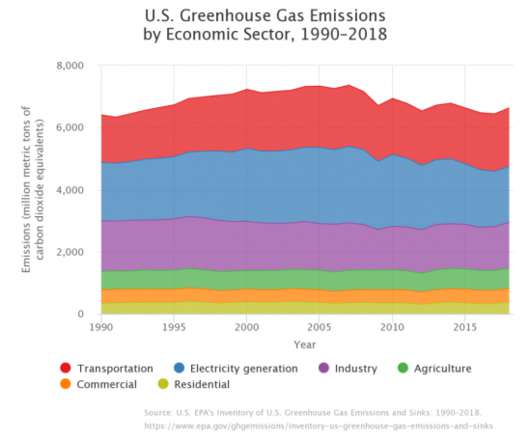EPA GHG Inventory shows US GHG down 1.7% y-o-y in 2019, down 13% from 2005
Green Car Congress
APRIL 17, 2021
This decrease was driven largely by a decrease in emissions from fossil fuel combustion resulting from a decrease in total energy use in 2019 compared to 2018 and a continued shift from coal to natural gas and renewables in the electric power sector. CO 2 emissions decreased 2.2% from 2018 to 2019. Total GHG emissions in 2019 were up 1.8%





























Let's personalize your content